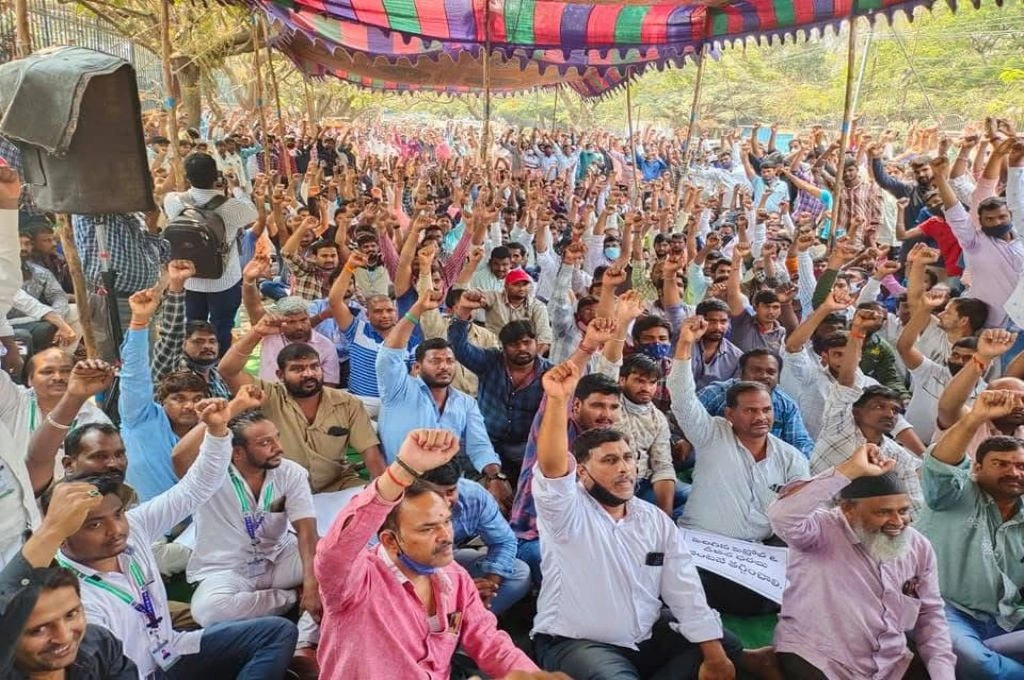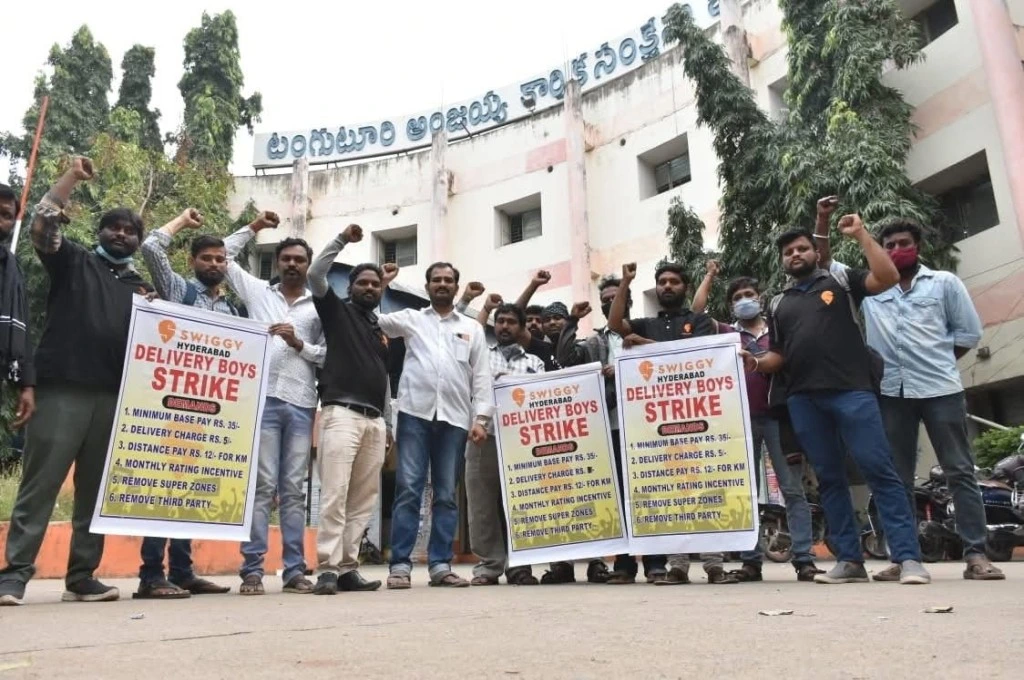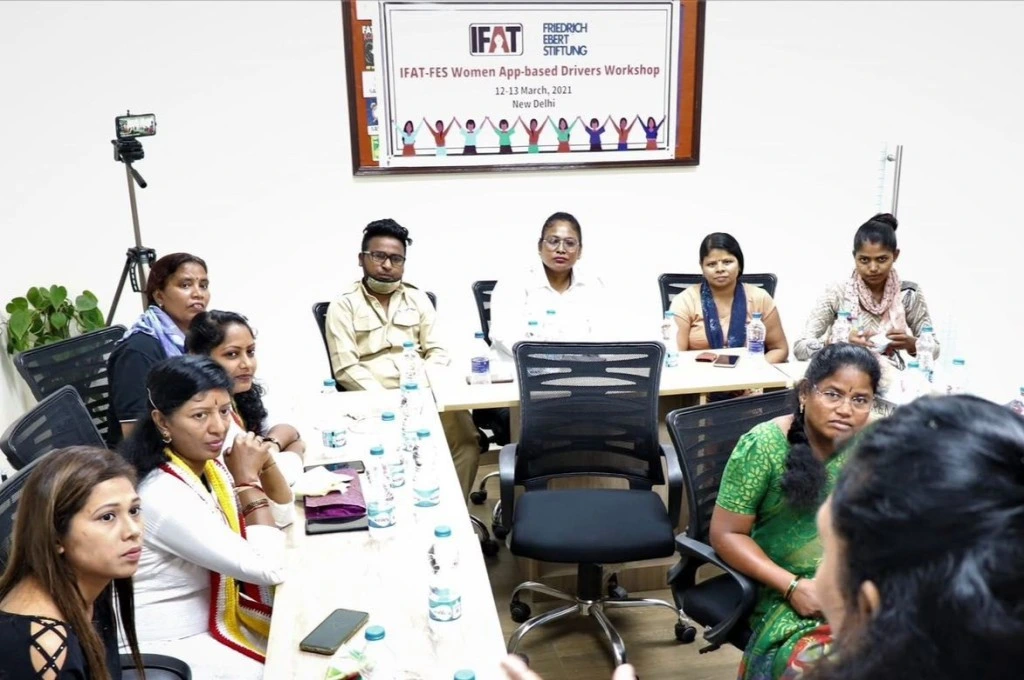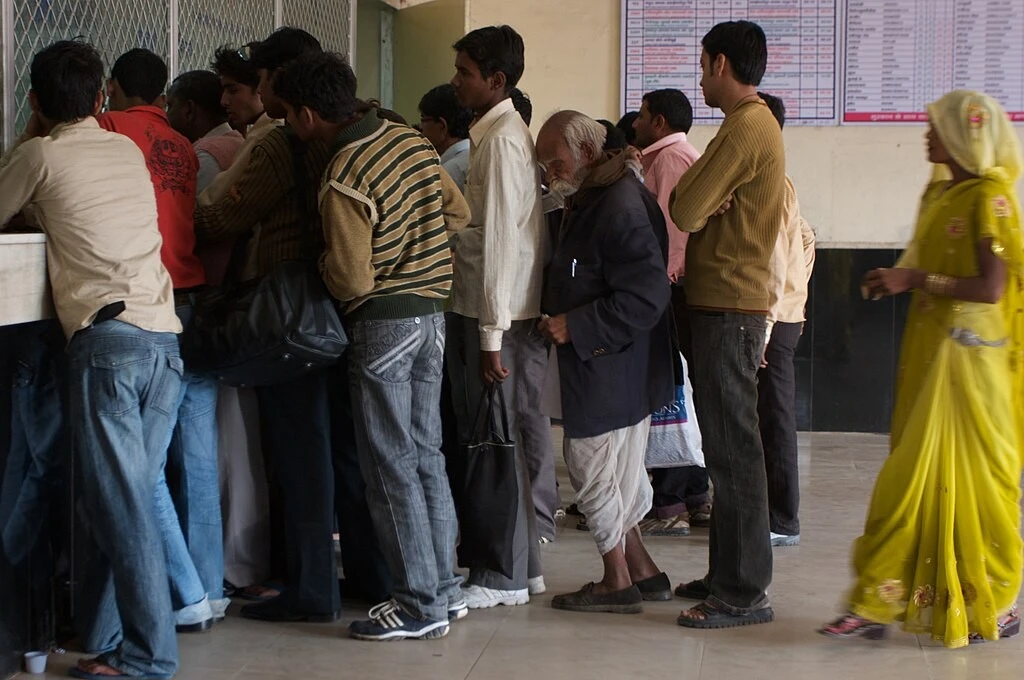From 7.7 million in 2021 to 23.5 million by 2030, India’s gig and platform workforce is on a trajectory of explosive growth. However, this rise has been shadowed by mounting concerns, from unfair labour practices to outright exploitation. Underneath the host of challenges that gig and platform workers experience is a broader structural issue: We are not onboarded as employees but as ‘partners/users’ using the platform to provide a service to our clients. This removes us from the ambit of most formal labour rights in India that promise pensions, maternity leave, health insurance, and compensation for death by accident or injuries on the job.
Several states, most recently Jharkhand, Karnataka, Telangana, and Rajasthan, have introduced legislations to ensure that these workers have basic rights. Various unions and worker organisation, many of which I am part of—such as the Telangana Gig and Platform Workers Unions (TGPWU) and Indian Federation of App-Based Transport Workers (IFAT)—have been closely involved with the development of these legislations, which have come into being more than 10 years after gig and platform work took the nation by storm.
In my own state, a draft bill titled the Telangana Gig and Platform Workers (Registration, Social Security and Welfare) Bill, 2025 was introduced in April this year. It includes the establishment of a social security and welfare fund for the workers, mandatory payments by aggregator companies to the workers, introduction of a grievance redressal mechanism, and setting up of a gig and platform workers’ welfare board.

But the road to introducing these laws in India has been long and arduous, marked by frequent disputes with aggregator companies and the government, and protests that led to the imprisonment of many union leaders.

The early days of aggregator companies
Aggregator companies such as Ola and Uber appeared in the Indian market in the early 2010s, right when the internet and smartphones were drawing in millions of users, and the market was recovering from the 2008 crisis. I have been a private driver for a long time, and had been closely involved with union work even before the arrival of these companies.
In 2013–14, several workers were lured by the generous incentives these companies offered; I was one of them. The incentives were remarkable, and promised to transform ordinary lives. They included a bonus of INR 1,000 on every fourth ride, a referral bonus of INR 5,000, along with very good rates per kilometre. On every bus stand, billboard, and train station, one could see advertisements promising an income of INR 1–1.5 lakh to the drivers of these companies. Many moved from villages, leaving their jobs as farmers or barbers or shopkeepers, to chase the dream these companies were selling.
On the other side of the market, customers were incentivised with free rides and heavy discounts.
As the months went by, more and more drivers and customers joined these platforms of aggregator companies. This is when the dreams came to an aggressive halt. The incentives were pulled back; the discounts were gone. These companies got exactly what they wanted: They had established a large base of consumers and workers, and were slowly but surely on their way to replace traditional models of taxi services all over the country.

In the years that followed, more gig-work-based aggregator companies entered the market, each bringing with it promises of better livelihoods, which were quickly replaced by an onslaught of labour exploitation. There was no income security, fixed income, or any benefits that workers are entitled to under traditional labour laws. Opaque algorithms decided who gets to work and for how much. IDs would often be deleted with little to no explanation, cutting people off from their only source of livelihood. This was happening to every gig and platform worker, from delivery boys and drivers to beauticians and mechanics.

Why we needed to build collective power
This is when we realised that the multiple, fragmented unions and advocacy groups all over the state would have to come together and fight for the rights of the workers.
Lone voices can be drowned, but a chorus is harder to ignore. The small unions across Telangana that were fighting for the rights of different kinds of workers all came together. Our experience led us to consult with groups advocating for legislations in Rajasthan and Karnataka, both states with a Congress government at the time. At the national stage, IFAT was becoming one of the leading bodies advocating for gig and platform workers’ rights to equitable treatment, safe working conditions, and fair wages.
The unions started protesting against the aggregator companies and demanding better working conditions. We did not receive any support from the labour ministry, the transport ministry, or the IT ministry. Whenever we approached the labour ministry, they would tell us that we have a ‘partner’ relationship with the aggregators, and are not employees. Hence, gig and platform work was outside the jurisdiction of labour laws.
Yet, we continued to protest. On several occasions, Ola filed police complaints against us and I was jailed a couple of times in relation to these charges.
While aggregator companies were sending generous amounts of money to the PM-CARES fund, drivers and workers died by the thousands with no relief provided to them.
Things took a turn for the worse during the COVID-19 pandemic in 2020. Many companies asked us to continue driving and delivering at a lesser fare. Gig and platform workers were the most exposed to COVID-19 and were frequently transporting patients. While aggregator companies were sending generous amounts of money to the PM-CARES fund (which received more than INR 900 crore in the first year of the pandemic), drivers and workers—exposed so frequently to the virus—died by the thousands with no relief provided to them whatsoever. We do not even have an estimated number of workers that died during the pandemic due to the nature of their work.
Eventually, we started protesting against this, and were finally provided with the correct PPE kits and small rations of pulses and wheat.
During the second wave of the pandemic, Ola started requesting its customers for donations that it would then transfer to its drivers. But the customers were unaware that Ola was sending this money to us as a loan, which they would ask back for in 30–60 days. Ola also had a car-leasing scheme where drivers would take vehicles from the company and pay INR 1,100 per day in rent. The agreement was that after three years, the car would become theirs. Many people were close to completing this term when Ola called the cars back under the pretext of sanitisation, and then sold them off. This happened across the country.
Far from providing workers with any relief, aggregators instead made their woes monumentally worse. And without any support from the government, protesting was the only solution.
By the time the pandemic ended, we had managed to push through a handful of changes. Earlier workers used to get weekly payments, which was then turned into 24-hour payments. We also advocated for our right to know a customer’s drop location before accepting the ride, alongside tax waivers for SUVs.
In March 2024, Zomato announced separate vegetarian and non-vegetarian delivery fleets with distinct uniforms—a move widely criticised for endangering workers from marginalised religions and caste.
WhatsApp and social media became our main medium to mobilise workers for these protests.
In March 2024, for example, Zomato announced separate vegetarian and non-vegetarian delivery fleets with distinct uniforms—a move widely criticised for endangering workers from marginalised religions and caste, amid rising violence and discrimination around meat consumption. Unions quickly mobilised through social media, successfully rallying the general public, activists, and workers to pressure Zomato into reversing the policy.

The long road to legislation
A big challenge that we face in our advocacy work is that the government is often hesitant to meet our demands due to the pressure by powerful aggregator companies. In Rajasthan, Karnataka, and now Telangana, every piece of legislation has been a tug of war.
Backed by many unions and civil society groups, the first legislation was in Rajasthan. The journey to that draft was long and painstaking. After getting the Congress government on our side, our first task was to identify the issues that we wanted resolved. Delivery workers had their own set of problems, drivers had theirs. Women workers of Urban Company and similar platforms had another unique set of issues, including safety from gendered harassment by clients and the right to washrooms. We built the case profiles of workers, studied their stories, and drew out the issues they shared in common. Everything was brought together in one place, the common points highlighted, and the specific ones examined separately. We received huge opposition from industry bodies such as NASSCOM and CII.
But finally, the legislation was passed providing social security, a grievance mechanism, and insurance to the workers in Rajasthan. We managed to achieve another major win within a national policy. Although the Code on Social Security (providing the legal definition of a gig and platform worker) was passed in 2020, even after five years workers had not been linked to the e-Shram portal by the central government. We pushed for gig and platform workers to be included, and called it e-Shram 2.0.
The legislations in Karnataka and Telangana also focused on wages and social security. Legislations formed in each state have to be mindful of the issues of the state and the resources it has. We want to aim for complete social security. And once we have that, our next step will be to change the employee and partner/user relationship that allows these aggregators to bypass giving workers any benefits.
But for big changes to the rights of workers in this country, the Union Government and the labour department need to understand how collective bargaining works. Listening is one thing, putting it into action is another—for that you need real tools. Aggregator companies are powerful, and beside them the government looks small. They threaten to take their business away. The question is whether the government cares for the company, or for the livelihoods of its citizens.
—
Know more:
- Learn about how gig workers are impacted by climate change.
- Read about how India’s internet explosion fosters exclusion.
- Learn more about how the central government ignores the right of gig workers.




